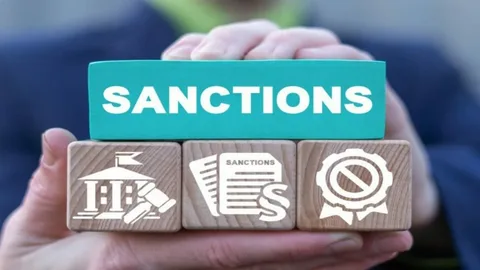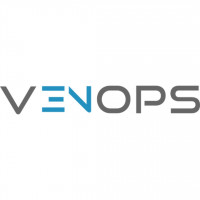Importance of Sanction Checks in the Healthcare Sector

Strong 8k brings an ultra-HD IPTV experience to your living room and your pocket.
The practice of sanctions checks is an integral aspect of trust, safety, and compliance in the healthcare context. Sanctions checks aim to ensure that individuals and organizations in the healthcare space are not engaging in illegal or potentially harmful activities that could harm patients and the industry.
Sanction checks can screen individuals and organizations against government-sanctioned lists to see if they are acting legally and ethically. A primary purpose of screening individuals and organizations in healthcare is to identify potential risks and ensure patient safety, while also maintaining compliance with relevant regulations. In this blog, I will discuss the importance of sanctions checks, how they work, and their impact on the healthcare industry.
What Are Sanction Checks?
Sanction checks involve screening individuals or organizations against lists maintained by government agencies, such as the Office of Inspector General (OIG) in the United States, the Department of Health and Human Services (HHS), or international bodies like the United Nations. These lists identify people or entities barred from participating in federal healthcare programs due to fraud, abuse, or other violations. In healthcare, sanction checks are used to verify that employees, contractors, vendors, or partners are not excluded from working in the industry.
For example, a doctor convicted of Medicare fraud might be added to the OIG’s List of Excluded Individuals and Entities (LEIE). Hiring or working with someone on this list could lead to penalties, loss of funding, or legal trouble for a healthcare organization. Sanction checks help avoid these issues by catching red flags early.
Why Sanction Checks Matter in Healthcare
The healthcare sector is unique because it directly impacts people’s lives. Mistakes or misconduct can lead to serious consequences, from financial losses to patient harm. Sanction checks play a key role in protecting the industry and its patients. Here are some reasons why they are so important:
1. Protecting Patient Safety
Patients trust healthcare providers to deliver safe and ethical care. If a provider or organization is on a sanction list, it often means they’ve engaged in behavior that could jeopardize patient safety, such as fraudulent billing or providing substandard care. By conducting sanction checks, healthcare organizations ensure that only trustworthy individuals are involved in patient care.
For instance, a nurse excluded for patient neglect could pose a risk if hired unknowingly. Sanction checks help catch these issues before they affect patients, ensuring high standards of care.
2. Ensuring Regulatory Compliance
Healthcare is one of the most regulated industries in the world. In the U.S., organizations must comply with laws like the Health Insurance Portability and Accountability Act (HIPAA) and regulations from the Centers for Medicare & Medicaid Services (CMS). Failing to perform sanction checks can result in hefty fines, loss of licensure, or exclusion from federal programs like Medicare and Medicaid.
The OIG, for example, requires organizations to screen employees and contractors against the LEIE regularly. Non-compliance can lead to penalties of up to $10,000 per claim for services provided by an excluded individual. Sanction checks are a simple way to stay on the right side of the law.
3. Preventing Financial Risks
Working with sanctioned individuals or entities can lead to significant financial losses. If a healthcare organization unknowingly submits claims to Medicare or Medicaid for services provided by an excluded person, those claims could be denied, and the organization may face fines or repayment demands. In some cases, organizations could lose their ability to participate in federal healthcare programs altogether, which can be devastating for their bottom line.
Regular sanction checks help identify risks before they escalate, saving organizations from costly penalties and ensuring financial stability.
4. Maintaining Reputation and Trust
Trust is everything in healthcare. Patients, partners, and regulators expect organizations to operate ethically and responsibly. Associating with a sanctioned individual or entity can damage an organization’s reputation, leading to lost business and public distrust. By conducting thorough sanction checks, healthcare organizations show their commitment to integrity and accountability.
For example, a hospital that hires a sanctioned vendor might face negative media attention, causing patients to question its reliability. Proactive sanction screening helps avoid these scenarios and reinforces public confidence.
How Sanction Checks Work
Sanction checks are typically conducted by cross-referencing names against databases like the OIG’s LEIE, the System for Award Management (SAM), or international sanction lists. The process can be manual or automated, depending on the organization’s resources. Here’s a basic overview:
Identify Individuals or Entities: Organizations collect the names of employees, contractors, vendors, or partners who need to be screened.
Search Sanction Databases: Names are checked against relevant sanction lists, either manually through government websites or using automated software.
Review Results: If a match is found, the organization investigates further to confirm the individual’s status and take appropriate action.
Ongoing Monitoring: Sanction checks aren’t a one-time task. Organizations must screen regularly, as new names are added to sanction lists frequently.
Many healthcare organizations use third-party vendors to streamline sanction checks, especially for large workforces or complex vendor networks. Automated tools can quickly scan multiple databases and provide real-time updates, reducing the risk of oversight.
Challenges of Sanction Checks
While sanction checks are essential, they come with challenges. For one, manually screening large numbers of employees or vendors can be time-consuming and prone to errors. False positives—when someone’s name matches a sanctioned individual but isn’t the same person—can also complicate the process. Organizations must have clear protocols to verify matches and avoid wrongful exclusions.
Another challenge is keeping up with changing regulations. Sanction lists are updated frequently, and new compliance requirements may emerge. Organizations need to stay informed and adapt their screening processes accordingly.
Best Practices for Effective Sanction Checks
To make sanctions checks as effective as possible, healthcare organizations should follow these best practices:
- Automate Where Possible: Use software to streamline screening and reduce human error.
- Screen Regularly: Check employees, contractors, and vendors at hiring and periodically thereafter.
- Train Staff: Ensure compliance teams understand sanction check requirements and processes.
- Document Everything: Keep records of all sanction checks to prove compliance during audits.
- Partner with Experts: Work with third-party vendors or legal experts to stay updated on regulations.
- The Bigger Picture: Sanction Checks and Healthcare Integrity
Sanction checks are more than just a regulatory requirement—they’re a cornerstone of ethical healthcare. By preventing fraud, protecting patients, and ensuring compliance, these checks help maintain the integrity of the healthcare system. They also foster a culture of accountability, where organizations prioritize doing what’s right over cutting corners.
In today’s world, where healthcare fraud and abuse are ongoing concerns, sanctions checks are a vital tool for safeguarding the industry. They help ensure that federal funds are used appropriately, patients receive quality care, and organizations operate with transparency.
Conclusion
Sanction checks are a non-negotiable part of running a healthcare organization. They protect patients, ensure compliance, and safeguard an organization’s reputation and finances. By investing in robust sanction screening processes, healthcare providers can focus on what matters most: delivering high-quality care to those who need it. Whether it’s a small clinic or a large hospital system, every healthcare organization benefits from making sanctions checks a priority. In an industry built on trust, these checks are a key step toward a safer, more ethical future.
Note: IndiBlogHub features both user-submitted and editorial content. We do not verify third-party contributions. Read our Disclaimer and Privacy Policyfor details.


